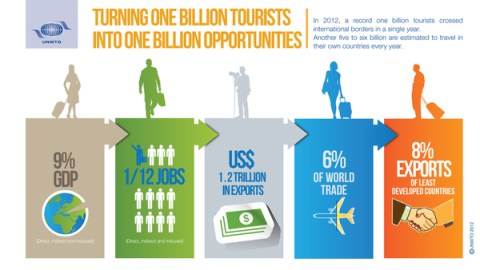Wanted: One Billion Travelers to Donate Your ‘Transportation Surplus’

Here’s the best idea you’ll hear today that you will also wish you thought of yourself. Just as Internet users contribute their ‘cognitive surplus’ to build sites like Wikipedia, international travelers can donate their excess luggage allotment as part of a novel delivery system to move millions of books, medical supplies or solar energy panels to the people that need them the most. In other words, if you’re flying to Kenya, make some room in your bag for a water purifier.
This idea was introduced to me by Alexandru Celac, a supporter and alumnus of Singularity University. What is so striking about this idea is that it involves tapping into a resource that is already there. International travelers are allowed to carry up to 30 kg when they travel by air. Celac points out the great significance of this. Travel and tourism is one of the fastest-growing global industries. According to the United Nations World Tourism Organization, this sector will employ one in 10 people by 2020. Right now, the number of international travelers has reached the one billion mark.
How can you quantify one billion tourists? If we assume they will all live to 70, their combined ages represent 5 times the age of the Universe. If we stacked these tourists on top of each other they would reach the moon six times. Of course, Celac is not interested in building a space ladder made of tourists but rather to leverage their excess carrying capacity for the common good.
Who’s in?
Visit the Billion Books Indiegogo campaign here to crowd-transport 1,000,000,000 books, using 1,000,000,000 tourists.





